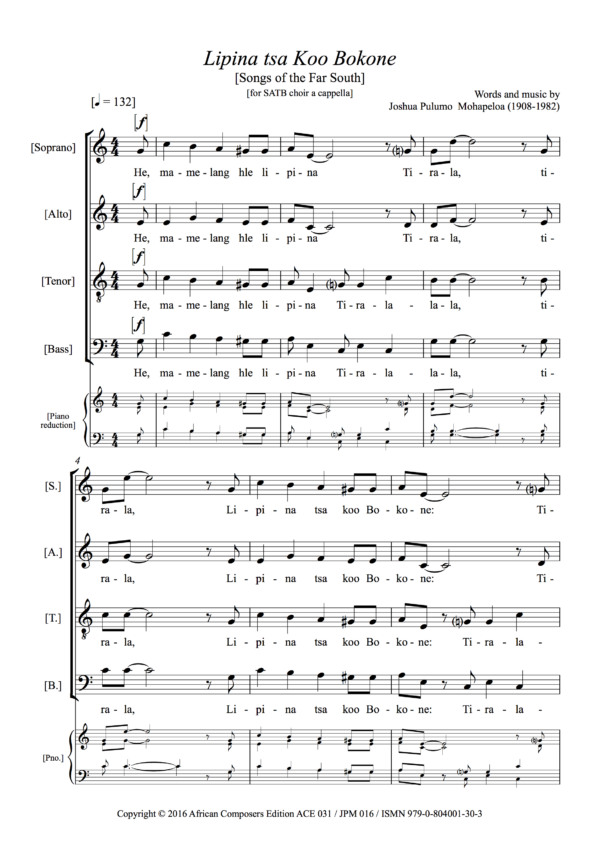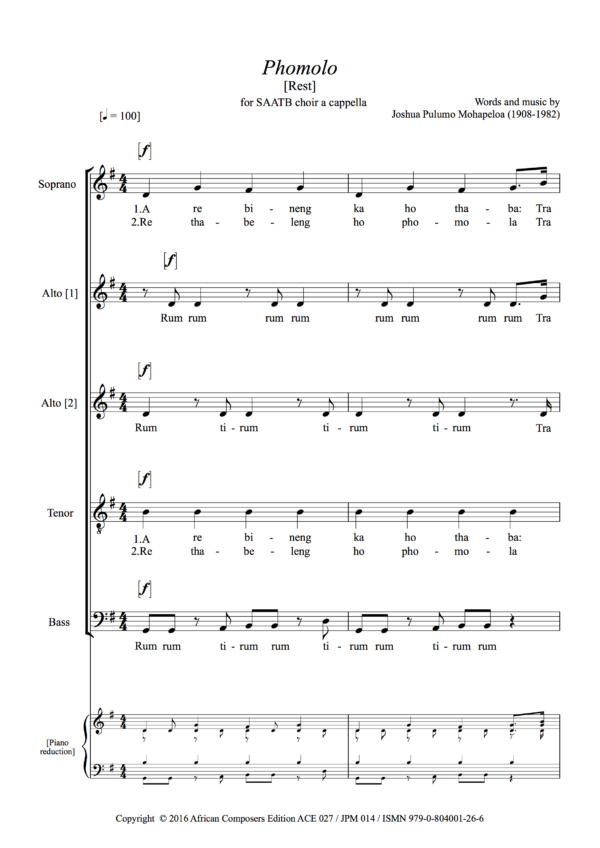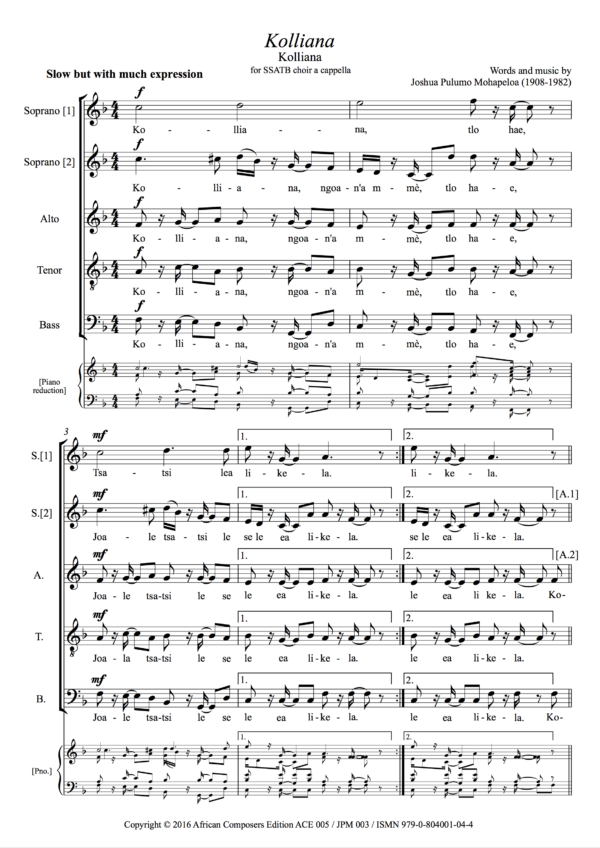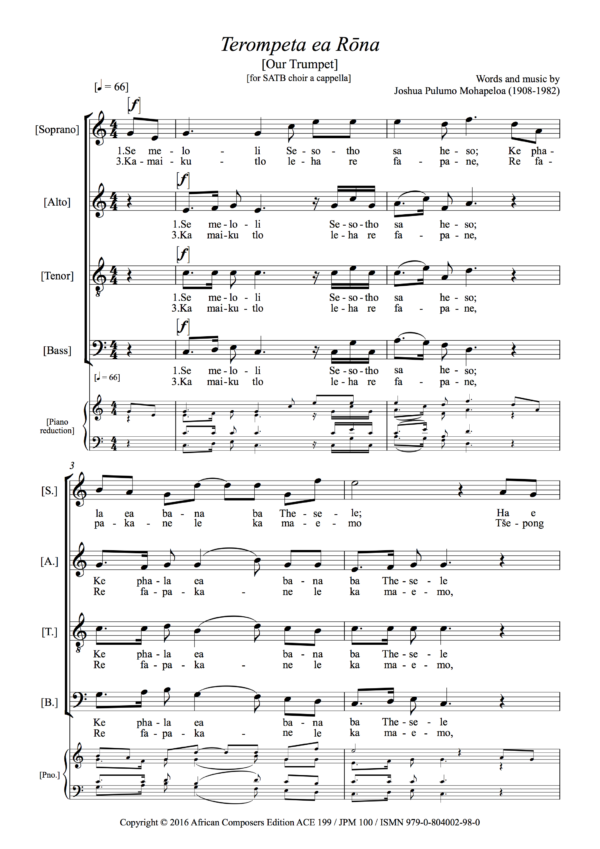Lithallera
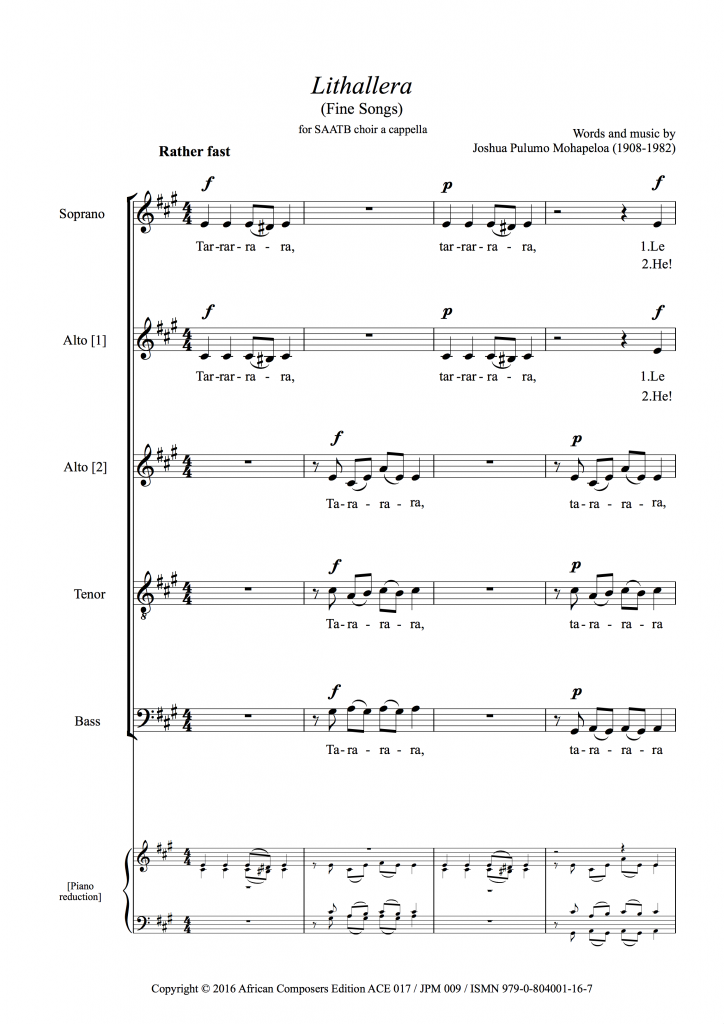
R39.00
‘Lithallere’ or ‘lithallera’ is a word for a particular type of song that Mohapeloa seems to have invented himself, for people in Lesotho who grew up singing his songs in school associate the word with him. It appears in the title of his first three songbooks, Meloli le Lithallere tsa Afrika, which he translated as ‘African melodies and extemporary harmonizations’. Mohapeloa pointed out in an interview with David Coplan in 1978 that the title reflects the ability of Africans “to sing in unison or harmonize without forethought – automatically”. His distinction between ‘lithallere’ and ‘meloli’ (pronounced ‘melodi’) is one between harmonized music for choir – ‘choral song’ or as it is translated here, ‘fine song’ – and folksong or sounds such as whistling. It is not a simple stylistic distinction between folk melody and western harmonization, for most of Mohapeloa’s songs are harmonized for 4-part choir. Mohapeloa mentions teaching his choir ‘to sing with tuneful voices’, and words such as ‘tarara’, ‘bina ka lithallere’, ‘ikaha likou’ and ‘meloliloli ea khabo’ in the text of Lithallera bring out the song’s focus on ‘singing’ as well as on ‘song’. The pride of Africans in fine songs and fine singing is, in short, the central theme of Lithallera, which comes from his first songbook, published in 1935.
